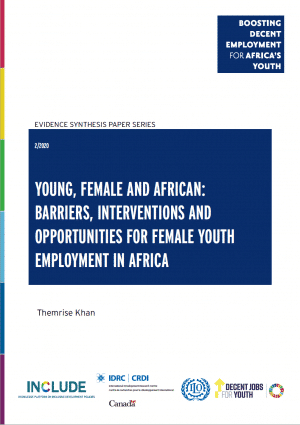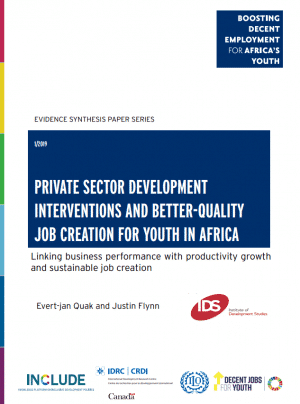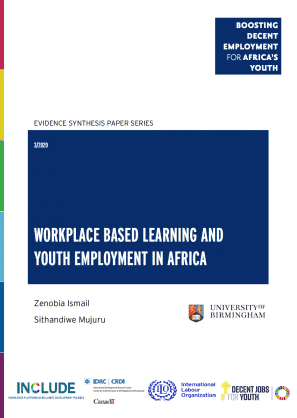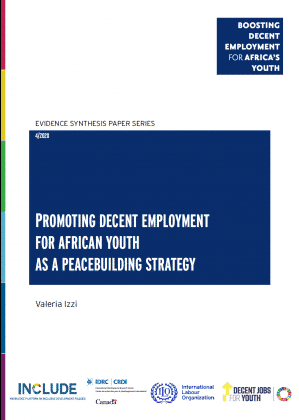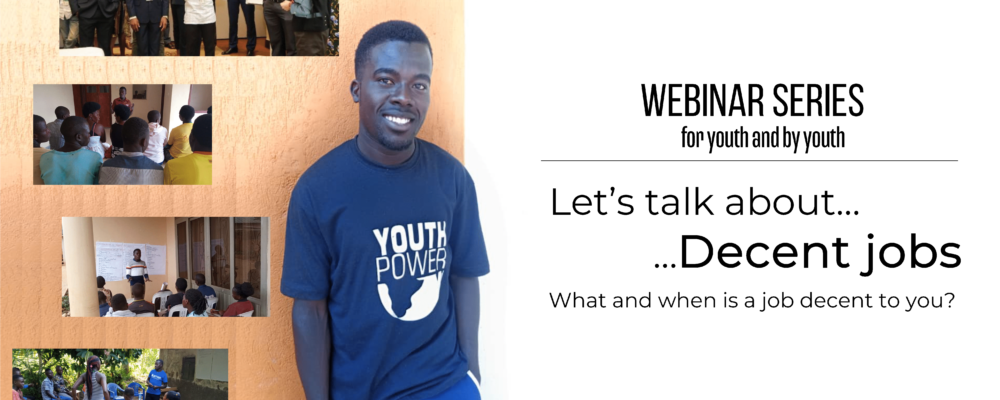
A decent job is not necessarily a white collar job or a job in the formal sector. It is something that you love doing that brings you financial freedom and dignity. According to youth in Uganda participating in this webinar – the first in a series that aims to bring youth voices to the discussion on ‘What and when is a job decent to you’ – it is not necessarily the official ILO definition that counts. It is the mindset of young people that is key to defining decent work. According to youth advocates, to make more jobs in Uganda decent, meaningful youth participation in the formal labour market and policy processes is key. Moreover, conditions in the informal sector should be changed to make the sector more decent and youth should boldly challenge the current education system to become more practical. Finally, it is necessary to improve business conditions and create greater financial inclusion for young entrepreneurs.
Please accept marketing-cookies to watch this video.
“Defining what the future is supposed to be lies in our hands. We have a role to play. That is why we are supposed to rise up and use our voices.” With these inspiring words Francis Arinaitwe, youth leader and a board member of Restless Development Uganda, launched the webinar series on ‘What and when is a job decent to you’ on 8 October. The series was initiated by Francis and organized in collaboration with INCLUDE. It aims to bring together various youth from different African countries, including Uganda, Rwanda, Kenya, Tanzania, Malawi, Zambia, Ghana, Nigeria, Egypt and Tunisia, to break down the official ILO definition of decent work and reflect on how it resonates with their own understanding in their respective countries. A group of highly motivated and skilled youth from Uganda kicked off the first webinar in the series with a discussion that centred around two main questions:
1. What does a decent job mean to you as a youth in Uganda?
According to the participants, a job is decent when it allows you to thrive and do something that you love, when you can earn a fair income that is commensurate with your efforts, and when standards of occupational safety and health are respected. Departing from the premise that decent work is employment that respects fundamental human rights as well as the rights of workers in terms of work conditions, safety and remuneration, Ugandan youth feel that they are distanced from such work. Many young people in the Ugandan labour market are unemployed or underemployed. Graduates are failing to find work within their field of study and, as a result, they turn to the informal sector for employment where they face a number of challenges, such as irregular payments, insecure terms, and lack of social protection. However, the participants pointed out that jobs in the informal sector are often wrongfully seen as ‘non-decent’. They all agreed that decent work can be found in both the formal and informal sectors, and that there is a general misconception that only white collar jobs are decent.
Considering fair pay, access, and security, what constitutes a decent job differs for men and women. The perception of the participants is that, due to gender constraints in the labour market, many young women in Uganda are overrepresented in the informal sector. However, driven by the desire to break barriers and create security for themselves many of them have broken out as entrepreneurs in different sectors. Within the context of self-employment, they are able to guarantee job security and earn a fair pay while doing something that dignifies them, something that they are proud of doing.
2. What is needed in Uganda to make more jobs decent?
Young Ugandans believe that the solution lies in entrepreneurship and a change of mindset. According to the participants, decency lies in self-employment and begins with them. Through self-employment, young people can create a decent work environment for themselves. However, the Ugandan market is not very welcoming for young people who are interested in starting a business. Many young Ugandans who start a business fail to sustain it because the environment is not conducive to young entrepreneurs. For that reason, the participants advocate for the improvement of business conditions, better financial inclusion, and more guidance and mentorship for young entrepreneurs. Meaningful youth participation is also needed, especially in the designing, planning and implementation of youth employment programmes that are about and meant for them. In addition, the formal sector should start employing more youth on different managerial levels. Once placed in a managerial position, young people can function as role models and are in a better position to vouch for their peers. Finally, a change of mindset is also needed to help young people understand that the attributes of decent work can be found in both the formal and informal sectors. Poor conditions in the informal sector are not immune to change. Decent jobs in the informal sector can, for example, be achieved through the implementation of traditional informal social protection schemes. This is partly a matter of mobilizing, organizing and empowering people within the sector to advocate for better working conditions. Recognizing that a change of conditions in the informal sector is needed, it is limiting to think that decent jobs are only possible in the formal sector.
As Francis Arinaitwe put it: “Whatever work they are doing in any sector, they themselves can determine whether or not it is decent”.
Young people are being innovative, and the labour market is ever changing. The definition of decent work was put forward many years ago and might not be sufficient to describe the jobs that are emerging now. Therefore, young Ugandans advise that in order to have a sense of what is decent work, we should not only rely on an official definition, but should also consider lived experience.
This webinar took place on 8 October and was moderator by Francis Arinaitwe (board member, Restless Development), with contributions by: Innocent Wakida (team leader, Restless Development), Mugisha Perez (student, Makerere University), Maria Moreen (team leader, Fastemere), Patrick Karekezi (Disarmament Advocate, United Nations), Praise Mwesiga (Youth Officer, FPA Rwenzori Regio), Ritah Kobusingye (Mastercard Youth Think Tank Alumna), Trevor Amanya (Mastercard Foundation Scholar with FAWE Uganda) and Joseph Okia (lawyer).
The next webinar will be organized with youth in Rwanda.
